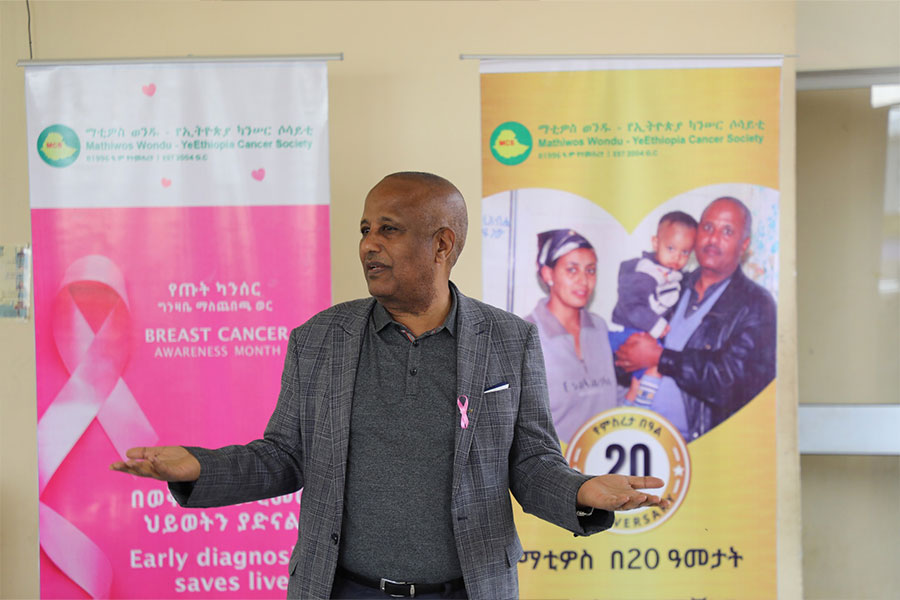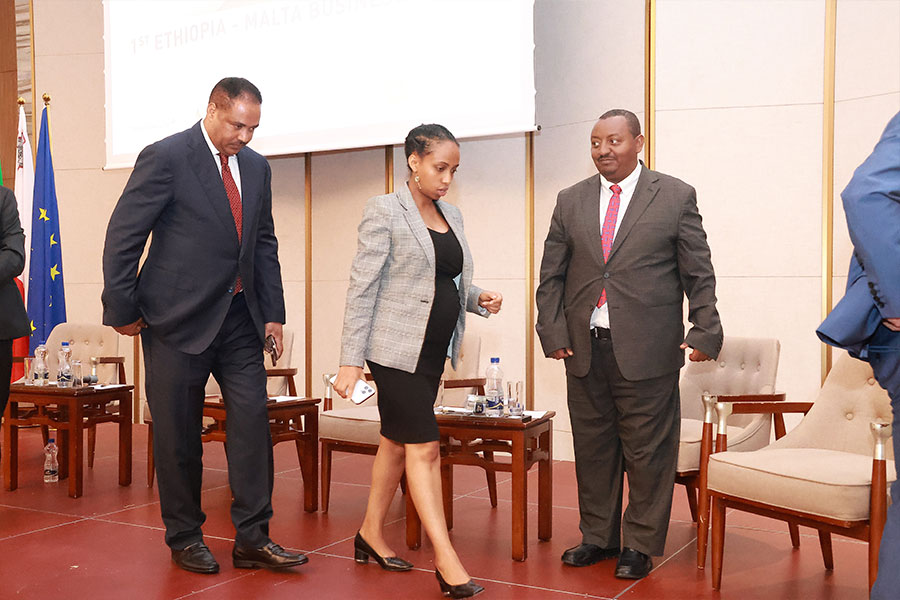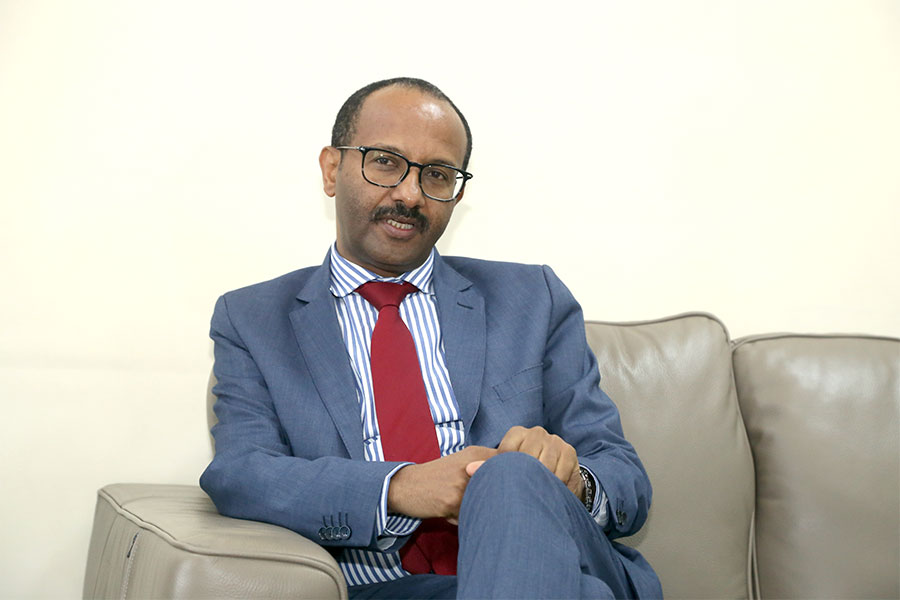
Commentaries | Dec 31,2022
Aug 13 , 2022
By Raila Odinga
As the global economy undergoes a fundamental transformation to decarbonise by 2050, the question for Africa is whether it can industrialise and rapidly develop without fossil fuels. The answer to that question is a resounding “yes,” provided the international community can reach a new global compact on the emerging green economy.
A new compact should include at least three core commitments. First, the international community should create a green-energy fund to promote an equitable energy transition in Africa. This would spur local entrepreneurship in the green-energy sector, including green manufacturing, supply chains, market access, and green-tech innovations.
Second, a global consensus must acknowledge that raw-materials exports are the core reason why Africa remains poor despite its vast minerals and commodities wealth. The international community should reject this status quo and, as the third pillar of the global compact, develop a framework to invest in green manufacturing in Africa.
This can take the form of global joint ventures and strategic partnerships to build manufacturing plants in Africa, with priority given to green projects. It is through manufacturing and the development of a value-added economy that Africa can achieve rapid industrialisation, knowledge and technology transfers, and substantial reductions in poverty.
Kenya provides a template for reimagining the energy transition. We aspire to build a sustainable digital knowledge society that is diverse, open, inclusive, and democratic. It will be driven by research, innovation, and the prudent management of our natural resources within a well-managed, diversified economy. We intend to become a global leader in all facets of the green economy, including finance, information and communication technology (ICT), data science, research and development, and manufacturing.
Our ambition is matched by our history. When fintech was still in its infancy, Kenya emerged as a global leader in the sector with the invention of the digital-payment system M-Pesa. Then, in 2009 alone, we attracted greenfield investments in the software and IT sector from 63 countries. Today, we host global companies such as Microsoft, Alphabet (Google), Cisco, Oracle, IBM, Abbott Laboratories, and Meta (Facebook). As an emerging global ICT hub, Kenya today is considered one of the most innovative countries in Africa.
In the environmental field, Kenya’s favoured daughter, the late Wangari Maathai, won the 2004 Nobel Peace Prize for building the Green Belt Movement, a pioneering global campaign to protect ecosystems and address the links between poverty, clean water, food security, and climate change. And earlier, in October 1973, Kenya became the first country in the Global South to host a United Nations agency. The United Nations Environment Program has been headquartered in Kenya ever since, and 23 other UN agencies now operate here.
Kenya is also a leader in the renewable energy sector, with 75pc of its electricity sourced from solar, geothermal, wind, and hydropower. With the use of decentralised smart grids and mini green grids, we can achieve 100pc renewable power while also rapidly scaling up rural electrification to promote digital and financial inclusion.
But Kenya is only getting started. Our natural resources are vast. We have large deposits of rare earth elements and critical metals that are essential for electric vehicles (EVs) and other technologies needed to drive decarbonisation. If used properly, these minerals can be the building blocks of sustainable green manufacturing, infrastructure, and supply chains. By promoting green manufacturing, we can create large numbers of well-paying jobs and lift millions of people out of poverty. High-quality “green products” based on modern best practices command higher prices. By promoting high-value industries, we will unleash our greatest resource: the energies and talents of our youth.
But this transition will require investing in green infrastructure and the human capital required to sustain green-business ecosystems. For this reason, I believe that Kenya, like many developing countries, must make green manufacturing a national priority. We can make rapid progress toward this goal by decarbonising and raising productivity in agro-processing sectors such as cotton, textiles, and apparel. We also must restructure the steel industry to produce high-quality “green steel,” and we must manufacture more of the high-value products that rely on the rare earth elements and critical metals that are abundant in Kenya.
The same is true across Africa. Imagine chocolate made entirely in Ghana or Côte d’Ivoire. Imagine EV batteries manufactured in the Democratic Republic of the Congo and green steel from Kenya. Imagine copper fully processed in Zambia, and diamonds exported as finished products from Botswana. Imagine Africa becoming the top global producer of green hydrogen and the leader in carbon-capture technology. Imagine a continent that can leapfrog ahead of the rest of the world in green technology, R&D, manufacturing, and finance.
It’s a realistic vision. But it will require a new global compact. With the full support of the international community through appropriate financial facilities and a framework to promote green manufacturing and discourage raw-materials exports from Africa, countries like Kenya can set the pace in creating twenty-first-century sustainable economies, lift millions of people out of poverty, and secure the future of our planet.
PUBLISHED ON
Aug 13,2022 [ VOL
23 , NO
1163]


Commentaries | Dec 31,2022

Radar | Dec 19,2021

Fortune News | Feb 11,2023

Fortune News | May 18,2024

Agenda | Nov 16,2024

Commentaries | Jul 13,2019

View From Arada | Jun 07,2025

In-Picture | Mar 16,2024

Sponsored Contents | Jul 24,2022

Editorial | Sep 23,2023

My Opinion | 131772 Views | Aug 14,2021

My Opinion | 128157 Views | Aug 21,2021

My Opinion | 126102 Views | Sep 10,2021

My Opinion | 123723 Views | Aug 07,2021

Dec 22 , 2024 . By TIZITA SHEWAFERAW
Charged with transforming colossal state-owned enterprises into modern and competitiv...

Aug 18 , 2024 . By AKSAH ITALO
Although predictable Yonas Zerihun's job in the ride-hailing service is not immune to...

Jul 28 , 2024 . By TIZITA SHEWAFERAW
Unhabitual, perhaps too many, Samuel Gebreyohannes, 38, used to occasionally enjoy a couple of beers at breakfast. However, he recently swit...

Jul 13 , 2024 . By AKSAH ITALO
Investors who rely on tractors, trucks, and field vehicles for commuting, transporting commodities, and f...

Jul 5 , 2025
Six years ago, Ethiopia was the darling of international liberal commentators. A year...

Jun 28 , 2025
Meseret Damtie, the assertive auditor general, has never been shy about naming names...

Jun 21 , 2025
A well-worn adage says, “Budget is not destiny, but it is direction.” Examining t...

Jun 14 , 2025
Yet again, the Horn of Africa is bracing for trouble. A region already frayed by wars...

Jul 6 , 2025 . By BEZAWIT HULUAGER
The federal legislature gave Prime Minister Abiy Ahmed (PhD) what he wanted: a 1.9 tr...

Jul 6 , 2025 . By YITBAREK GETACHEW
In a city rising skyward at breakneck speed, a reckoning has arrived. Authorities in...

Jul 6 , 2025 . By NAHOM AYELE
A landmark directive from the Ministry of Finance signals a paradigm shift in the cou...

Jul 6 , 2025 . By NAHOM AYELE
Awash Bank has announced plans to establish a dedicated investment banking subsidiary...